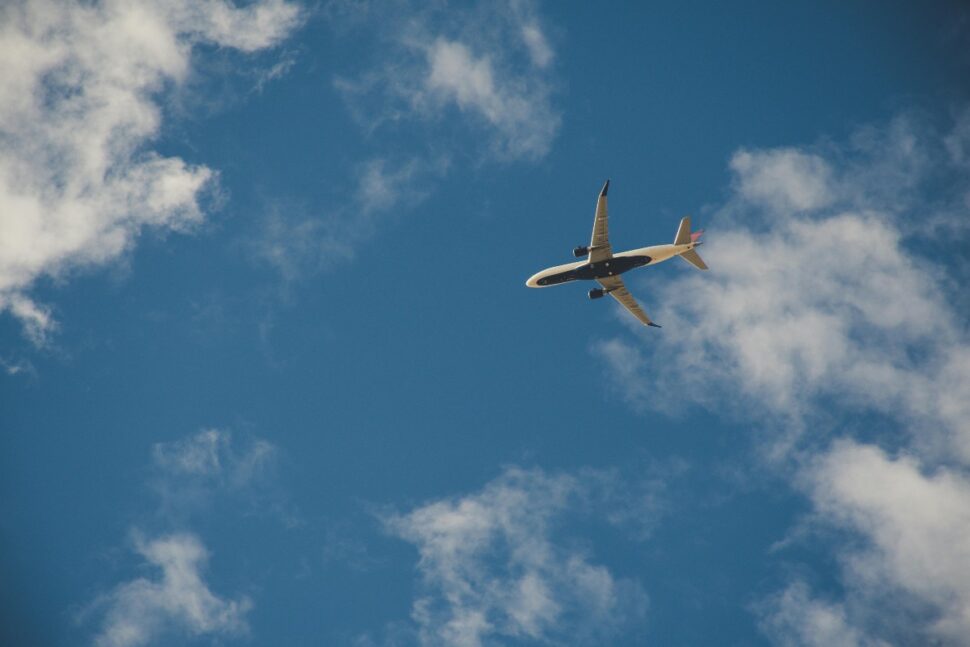One of the challenges of traveling with young children, especially infants, can be the airline. Most airlines are family-friendly and accommodate travelers with children of all ages. However, there are a few that place restrictions on infants and can go so far as to prevent babies from being allowed on flights altogether, depending on the airline’s policies. It’s rare, but the chance isn’t zero. Think of these considerations as a travel guide when booking your next flight.

Travel Information for Airlines With a No-Baby Policy
Restrictions can range from age limits to bans on specific classes, like business or first class. Most travelers don’t like the noise and disruption that can come from an unattended or bored child, because many passengers use flight time to rest, sleep, or work. But if the child isn’t unaccompanied entirely, the primary points to consider.
No Infants Allowed on Flights
While rare, some airlines have policies that either ban infants outright or place restrictions on very young babies. These rules are often in place for safety reasons, such as concerns about a baby’s ability to adjust to cabin pressure or the limited medical facilities available onboard. Parents should carefully review airline policies, particularly for newborns or premature infants who may be more vulnerable during air travel.
Flying With Children Restrictions
Airlines that allow infants typically have restrictions, such as requiring the baby to be a minimum number of days old (usually around 7 to 14 days). These restrictions are based on health and safety guidelines. Always verify the specific policies of the airline you plan to fly with before booking your ticket.
Airlines Banning Infants in Certain Classes
Some airlines, particularly those catering to business or luxury travelers, may restrict infants in premium classes. For example, certain airlines have implemented no-baby policies in first-class or business-class cabins to maintain a quiet environment for their customers. These policies are not a complete ban on infants but limit where they can be seated on the plane.
Airlines With Travel Policies
Airlines that allow infants will have specific guidelines that must be followed. These can include requirements for special documentation, such as a doctor’s note if the baby is under a certain age, or guidelines on the use of car seats and other infant safety equipment. It’s crucial to familiarize yourself with these rules well before your travel date to avoid any surprises.
Airlines With Infant Restrictions
- Japan Airlines and All Nippon Airways (ANA): Both of these airlines provide a family-friendly environment, the caveat being their premium cabins, the designated seats with a “baby icon” on their booking maps. This allows other passengers to see where infants will be seated, potentially avoiding unnecessary touching, seat kicking, or encroaching on personal space in such cramped conditions.
- Corendon Airlines: Corendon Airlines introduced a child-free zone on select flights, where passengers can pay extra to sit in a quiet section of the plane. This area, which is located at the front of the aircraft, excludes children under 16 years old, aiming to offer a more relaxed environment for passengers seeking a quieter journey.
- AirAsia X: AirAsia X, a long-haul, low-cost carrier, offers a “Quiet Zone” in the front of its economy cabin where children under 10 years old, including infants, are not allowed. This section is designed for travelers who prefer a quieter flight, with minimal disruptions from young children.
- Malaysia Airlines: At one time, Malaysia Airlines had a policy that banned infants from first-class cabins on certain aircraft to maintain a quiet environment for premium travelers. This policy has seen various changes and may vary depending on the route and aircraft.
- Scoot: This Singapore-based budget airline offers a “ScootinSilence” cabin where children under 12 years old, including infants, are not allowed. This cabin is located just behind business class and is marketed as a quiet zone.
Travel Guidelines: Family-Friendly Options
Unless you have just conceived, you’re going to be able to fly. While airlines with restrictions exist, the vast majority of airlines are accommodating, and it’s worth noting many travelers are understanding and patient, recognizing that parents and children are also just trying to get from one place to another. If you’re planning on taking a trip with your kid, here are some travel tips:
Research and Book Early: Always research the airline’s policies regarding infant travel before booking your ticket. Some airlines offer special amenities like bassinets, priority boarding, and extra space in certain rows, making travel more comfortable.
Check Age Restrictions: Most airlines require infants to be at least 7 to 14 days old to fly, although some may have more lenient policies. Checking this ahead of time will save you from any last-minute issues at the airport.
Consider Family-Friendly Airlines: Airlines like Emirates, Qatar Airways, and Singapore Airlines are known for their family-friendly services, including priority boarding, baby meals, and even dedicated children’s entertainment.
Prepare for Travel: Regardless of the airline, travel with young children requires preparation. Ensure you have all the necessary documents, including birth certificates, passports, and any medical clearance if needed. Pack enough supplies, such as diapers, formula, and snacks, to keep your baby comfortable during the flight, and charge your gadgets to help keep your child entertained.
Fly Confidently With Your Kids
Consider your next destination. Navigating airline policies can be daunting, but with proper planning and understanding, most airlines will ensure a smooth journey. Specific restrictions don’t necessarily signify the end of something and can serve to protect your children beyond outright prohibition.
Always check directly with the airline for the most up-to-date information on their infant travel policies; consider family-friendly airlines for a more accommodating experience. Unless you’re planning on sending an unaccompanied minor, you will be able to take your kid. Whether you’re planning a long-haul international trip or a short domestic flight, understanding these guidelines will help you prepare and enjoy your journey together.

